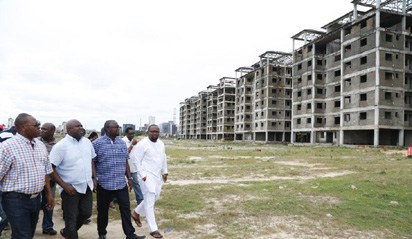For too long, the demand for equity contribution as a prerequisite for accessing housing loan facility from mortgage and other deposit banks has denied many Nigerians opportunities to own homes, leading to the widening housing demand-supply gap in the country.
But that narrative is changing significantly by reason of one of the recent initiatives by the Federal Mortgage Bank of Nigeria (FMBN), which has scrapped equity contribution on housing loans below N5 million and 10 percent flat rate for housing loans beginning from N5 million to N15 million.
Zero equity on housing loans targeted at federal civil servants means those of them earning low salaries and are subscribers to the National Housing Fund (NHF) can now access N5 million mortgage with which they can start the journey to homeownership without the usual fear and difficulty in repaying the principal and the interest.
“We have removed equity contribution on all loans below N5 million in order to ease access to the National Housing Funds (NHF) in the country,” Ahmed Dangiwa, FMBN’s managing director, explained at an international housing conference in Abuja recently.
Equity contribution is a financial contribution calculated as a percentage of the loan, usually as high as 30 percent, which mortgage lenders demand from borrowers to serve as a hedge against loan default and also as a means of reducing the borrower’s risk exposure.
Mortgage banking operators say equity contribution is fundamental to mortgage lending just as a regular flow of income is. “Equity contribution is fundamental because there are institutional and regulatory developments that are still being expected in the industry.
“There is no dependable data-base of Nigerians yet; the national ID card remains largely unreliable and foreclosure laws are still not strong,” Eniola Bamidele, a mortgage operator, explained to BusinessDay.
This has been a major impediment to owning homes in Nigeria where house prices are extremely high. It is the reason homeownership level in the country is a little above 10 percent as against Singapore’s 65 percent, UK’s 72 percent, and over 80 percent in the US.
Equity contribution also validates a report compiled by Pison Housing Company which says that about 80 percent of the Nigerian population lives in rented accommodation, spending 50 percent of their income on paying house rent.
The Lagos State Home Ownership Mortgage Scheme (LagosHOMS) was an innovative and pace-setting initiative with which the state government under the Babatunde Fashola administration wanted to increase homeownership level in the state through increased access to mortgage.
The laudable scheme could not go far because of the 30 percent equity contribution, which the scheme demanded from the subscribers. The downward review of the equity contribution to as ‘low’ as 5 percent did not strike a loud chord among the state’s civil servants, which the scheme was targeted at.

This, along with other extraneous factors, is reason the state still struggles with enormous housing challenge. Roland Igbinoba, CEO, Pison Housing Company, noted in their revised State of the Lagos Housing Market report that the state has an estimated three million housing deficit and over 60 percent of its residents living in rented accommodation.
There is, however, hope for federal civil servants as Dangiwa disclosed that the apex mortgage bank has, besides the zero equity on housing loans below N5 million, introduced other new initiatives to ease access and improve affordability of houses in the country.
The bank is collaborating with national labour centres for targeted housing delivery under the National Affordable Workers Housing Scheme (NAWHS). It is also collaborating with the Head of Civil Service of the Federation for housing delivery for federal public servants, paramilitary organisations and cooperative societies for the informal sector.
Source: businessdayng




